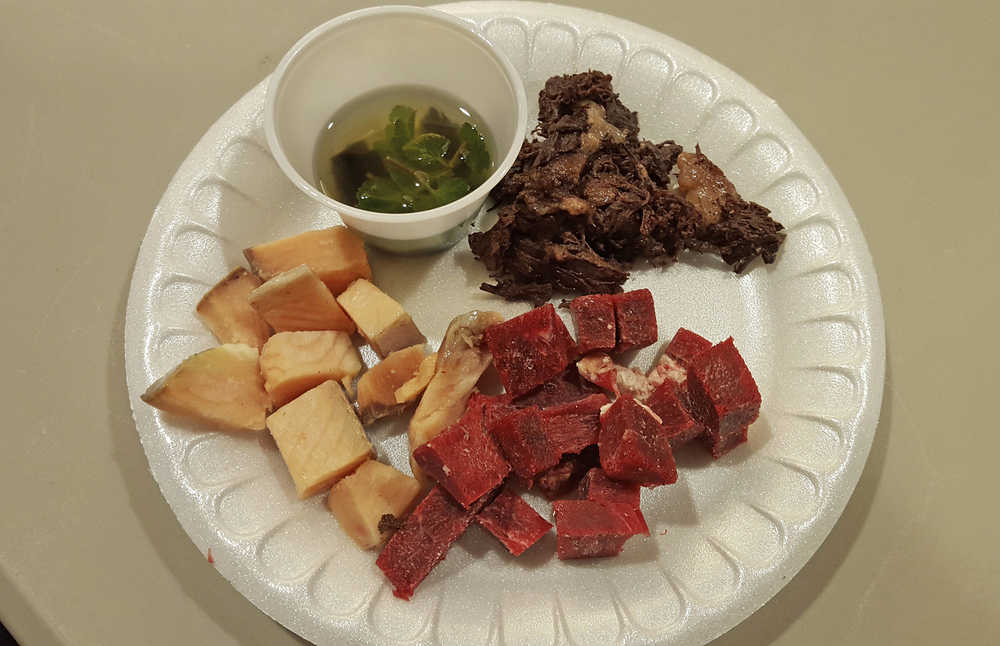ANCHORAGE — Alaska regulators are working with an Alaska Native organization that wants to serve its nursing home residents nutrient-rich seal oil, a traditional staple that’s banned in public settings because of its high risk for botulism if not properly processed.
Lorinda Lhotka with the Alaska Department of Environmental Conservation, said the agency would grant an exemption to the Kotzebue-based Maniilaq Association if it can demonstrate a safe method for rendering the oil, which can taste like a heavy, if slightly fishy, olive oil when fresh. It’s used like a dipping sauce in Native households across the state.
“We know that it’s a really healthy food, but there’s also some hazards associated with it if it’s not prepared safely,” said Lhotka, a member of an unofficial task force looking at ways to make seal oil legally available.
Alaska consistently ranks among the highest in the nation for rates of foodborne botulism. The numbers vary widely, but generally range between zero and as many as 15 people affected each year. Deaths, however, are rare, occurring in Alaska only twice in the last 10 years, according to Louisa Castrodale, a state epidemiologist.
Botulism can lead to temporary paralysis, with complications arising if breathing muscles are affected, Castrodale said.
Maniilaq, a regional tribal health care nonprofit based in Kotzebue, hopes it can add seal oil to the list of traditional foods that can legally be donated to facilities such as its Kotzebue nursing home, which serves elderly Inupiat Eskimos. The organization, like other tribal entities in the state, has also recently begun to incorporate other traditional foods on the menu.
For its seal oil quest, Maniilaq has teamed up with University of Alaska Fairbanks researchers, as well as University of Wisconsin botulism expert Eric Johnson, to assess the oil rendering process at its new Kotzebue processing plant for traditional foods. The researchers first will accompany a Maniilaq official on a seal hunt in June, according to nursing home administrator Val Kreil.
For now, Kreil is holding off on telling the nursing home residents about the possibility of serving them the oil from the marine mammals. But he joked that people would be so happy if Maniilaq got the go-ahead to serve it that they would build a statue of him in town.
“It’s part of their diet,” Kreil said. “It’s like butter.”
Johnson said his role in Maniilaq’s endeavor is to assess and, he hopes, justify the process involved in preparing the seal oil for consumption.
Johnson said he is donating his expertise and his federally-approved laboratory, so he expects to ship some samples to Wisconsin.
“It’s an interesting project,” he said. “I’ve worked on botulism for over 30 years, so I’m intrigued.”
___
Follow Rachel D’Oro at https://twitter.com/rdoro

